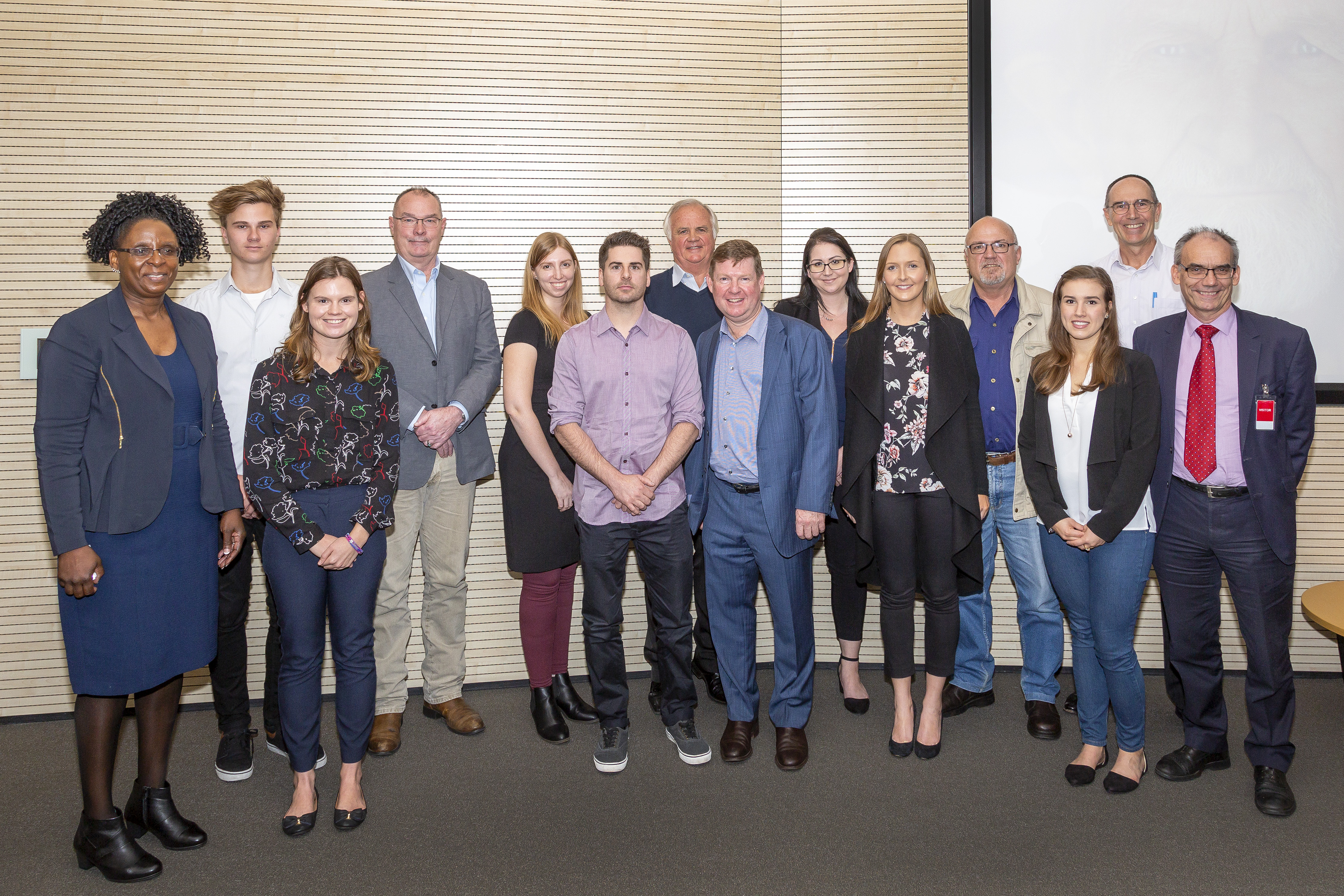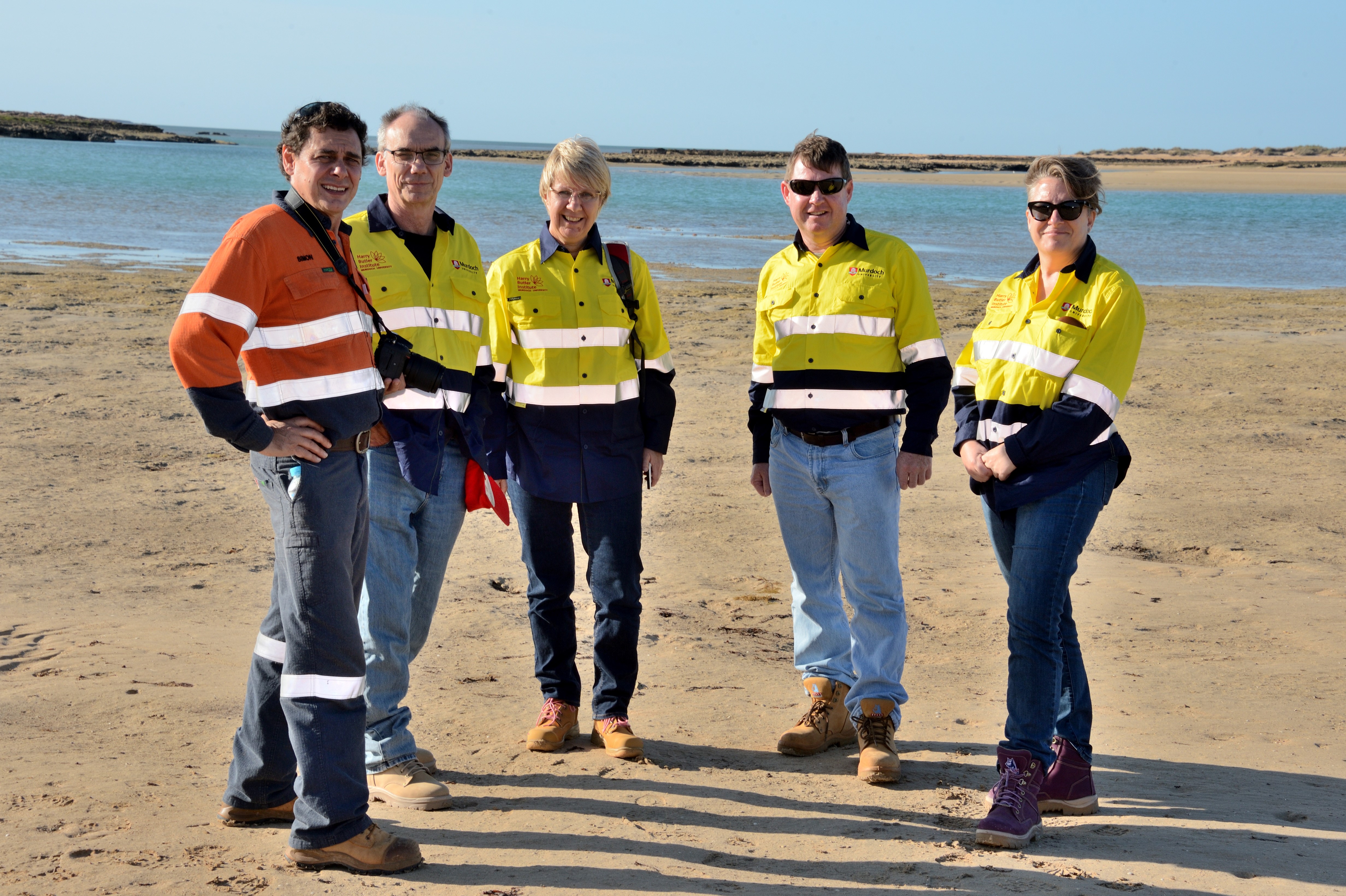Six future environmental custodians have earned a unique opportunity to protect the wilderness with their Honours studies at Murdoch University.
Ebony Cowan, Kyle Stewart, Lauren Peck, Monique Stafford-Smith, Megan Evans and Nicholas Watson received scholarships from the Harry Butler Institute, a research partnership between Murdoch University and global energy producer Chevron, to ensure the co-existence of biodiversity with business and community at different locations in Western Australia.
Presenting the recipients with their scholarships at Chevron’s offices recently, Murdoch University Deputy Vice Chancellor David Morrison said the Harry Butler Institute would guide and develop the next generation of leaders in conservation and environmental management.
“Students within the Harry Butler Institute will have the opportunity to work directly with industry partners like Chevron and continue to demonstrate how it is possible to achieve outstanding environmental outcomes based on excellence in both scientific research and industry practice,”
Professor Morrison said. “As a translational research university, long-term external partnerships such as these are essential in helping us tackle global issues like sustainability and environmental protection.”
The six Honours students will examine conservation challenges including the restoration of blue mussel populations in the Swan River estuary and improving the disease resistance of tuart trees in the South-West of the state.
Three PhD students from the Harry Butler Institute who are studying projects relevant to Barrow Island, off the Pilbara coast, also gave updates on their research projects. These include day and night monitoring of the island’s insects, finding environmentally-friendly pesticide alternatives for the transportation industry and developing biosecurity strategies to restrict the invasion of exotic species.
Chevron Senior Environmental Manager Russell Lagdon said the Harry Butler Institute partnership was already proving to be a success.
“Murdoch has excelled in demonstrating its commitment to the Harry Butler Institute by investing in the leading and emerging scientists of tomorrow in this field,” he said.
“We want our scientists to be able to engage with us and communicate their ideas, and we look forward to learning more about the outcomes of their research in the future.”





